Scientists share insights on Reading Scientific Service Limited’s apprenticeship scheme and advise their former selves
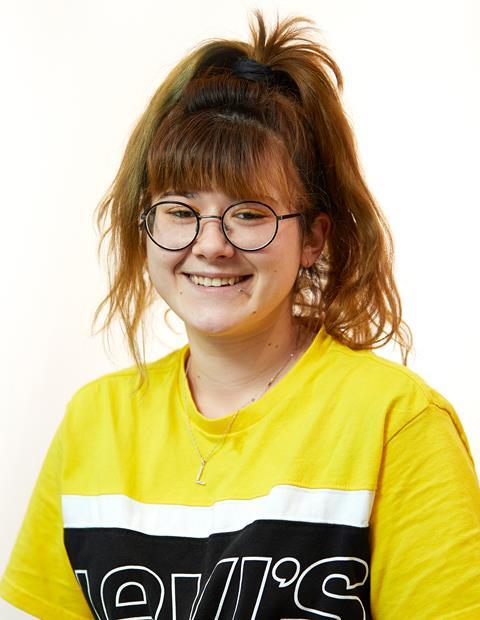
21-year-old Leah Hawkins-Maze studied history and chemistry at A-level and a level III Diploma in forensic science. She began her Reading Scientific Service Limited (RSSL) apprenticeship in September 2019 and was still working in retail a year ago.
‘I really enjoy the particle size analysis we do in the physical sciences lab at RSSL,’ she says. ‘The team is really friendly and helpful and there’s lots of opportunity to get involved in a range of things like method development, which I find very interesting.’
RSSL’s physical sciences lab performs a range of physical tests on both food and pharma products including the determination of particle size in chocolate; water content in pharma products; hardness for tablets; rheology and density for a wide range of samples.
Hawkins-Maze started out in retail and realised it wasn’t the right career path for her. ‘I decided to pursue science as it’s something I’ve enjoyed thoroughly and taken a huge interest in since I was a child. If I could go back and advise my former self I’d say “Do whatever makes you happy.” I came across the apprenticeship at that point and in the long run this has definitely been the best choice,’ adds Hawkins-Maze.
‘My advice is, don’t be thinking that just because you haven’t gone straight from A-levels to university that this world is closed off and that you can’t re-enter a studying environment to get where you want to be. I realised I was fully capable of re-adjusting back to a study lifestyle after two years of not doing it.’
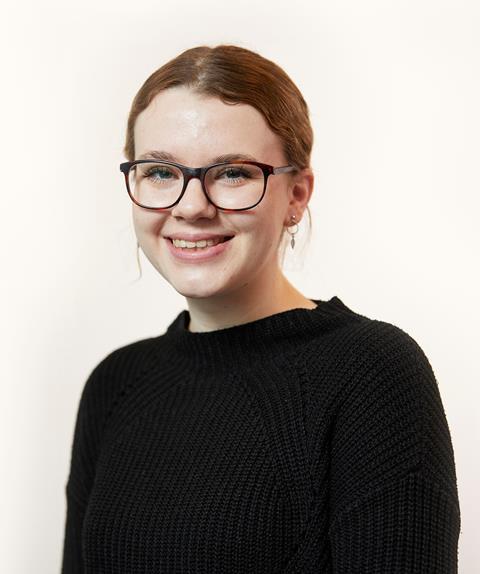
19-year-old Josie Giacomelli achieved A-levels in biology, maths and geography before starting the RSSL apprenticeship scheme in September 2019.
Giacomelli has found RSSL’s pharmaceutical chemistry lab a ‘busy but very exciting’ working environment.
RSSL’s pharmaceutical chemistry lab performs a wide range of wet chemistry techniques including titration; solubility and purity testing as well as identification tests like FTIR and thin-layer chromatography on the raw materials used to manufacture pharma products.
‘It is so great to be able to work on such a vast array of materials using a large variety of methods and techniques,’ says Giacomelli.
‘Nine months prior to joining RSSL, I was applying for university placements but unsure whether I wanted to go. I didn’t consider apprenticeships until I already had an interview lined up for a forensic biology course. I left it very late to consider an apprenticeship so I would tell myself to “explore apprenticeships beforehand,”’ she says.
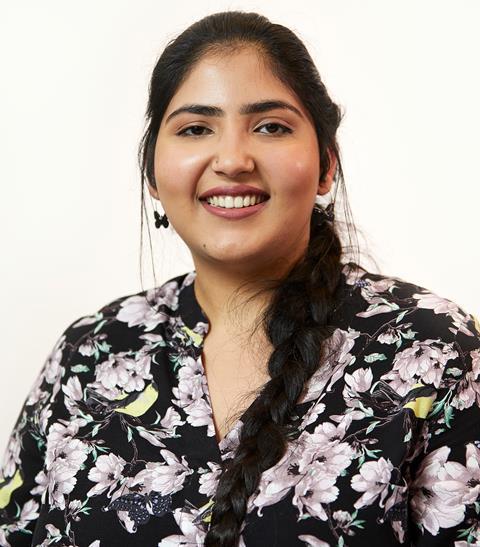
21-year-old Arisha Akhtar secured A-levels in biology, chemistry and maths before joining RSSL’s investigative analysis lab team in September 2019. A number of aspects of a scientific life appealed to her: ‘I decided to pursue a career in science because it requires lifelong learning – which is an ideology I firmly subscribe to – and a practical application of knowledge. I enjoy the systematic approach, used by scientist to form appropriate hypothesis and investigating them.’
‘During my four months here, I have been trained on various methods beyond the scope of the apprenticeship scheme,’ says Akhtar.
‘This means I work on different projects and do different analysis every week and therefore learn something new every day. I work alongside technical specialists who have so much knowledge and experience to share. I am enjoying the flexibility, the friendly environment and the opportunity to grow as a scientist,’ adds Akhtar.
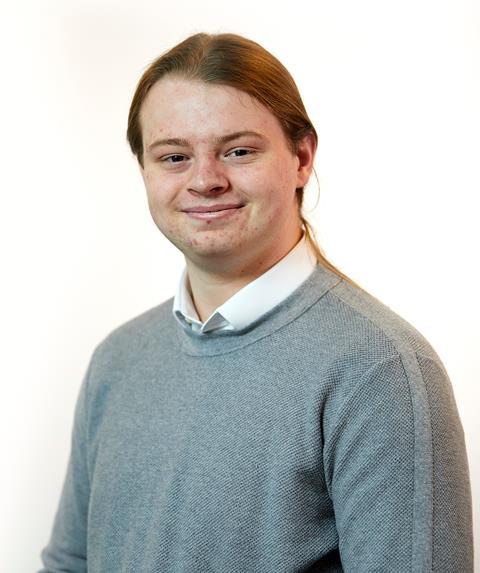
19-year-old Joe Lycett studied A-level biology, chemistry and maths before joining RSSL in October 2018. The fact that so many of RSSL’s senior scientists are happy to set aside time and explain things to him has helped him settle in.
‘They are understanding that you haven’t gained their level of experience and that there are things that you might be curious about. Some colleagues in the physical sciences lab helped me understand Karl Fischer titration for an essay I wrote which got positive feedback,’ says Lycett.
‘A year ago I was still learning the ropes but I would have told myself, “Just throw yourself into it,”’ adds Lycett.
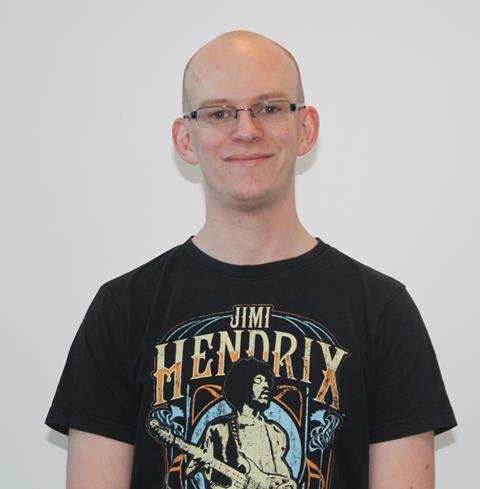
24-year-old Will Jones studied A-level chemistry, biology and psychology before starting his apprenticeship with RSSL in 2013. Family connections and a positive work experience encouraged him to persue a scientific path: ‘I chose a career in science after I had my work experience in a very small, two-person analytical laboratory,’ Jones explained. ‘My mentor had an infectious passion for science which has stuck with me. My Mum had also worked in a laboratory studying genetics for the majority of her career, which I had always had an interest in.’
Having completed the programme, Jones has progressed to the role of RSSL scientist I and now works in the pharmaceutical development lab.
‘The lab performs routine analysis on finished pharma products, which helps ensure their safety before market release,’ he says. ‘The lab also performs larger validation projects, including method development using mostly high-performance liquid chromatography (HPLC) and dissolution. It includes a stability team with responsibility for the maintenance of stability cabinets which facilitate accelerated storage and help determine pharma product shelf life.
‘I enjoy working within pharma development because I get to use a broad range of instrumentation and techniques such as HPLC, dissolution, FTIR, ultraviolet and Karl Fischer, which means I get a good balance of benchtop work, using instrumentation and data analysis.
‘In this role, you’re also critical to the development and distribution of pharmaceuticals ranging from simple over-the-counter medication to cancer drugs. Ultimately, the role ensures patient safety, which gives the day-to-day work meaning and purpose, as well as keeping it varied.’
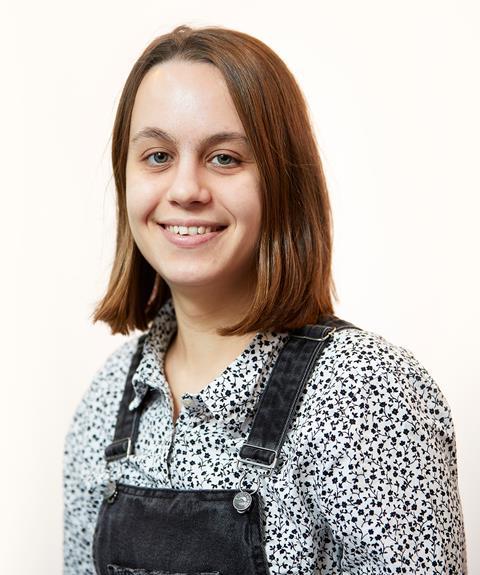
23-year-old Bethan Hopley – who studied A-level biology, chemistry and maths – started in 2015 and completed the apprenticeship before being offered a full-time technician role at RSSL.
Hopley cites her school science teachers as inspiration for her choice of career: ‘I did science A-levels but wasn’t sure what I wanted to do when I finished. I enjoy the practical and hands-on elements and always knew in school that I didn’t want an office job. I had a really supportive science department at school who said I could come and work in the prep room for a year while I worked things out – that’s where I found out about RSSL. I owe those teachers my science career.’
That experience has taught her to explore her options and find the best fit. ‘A year ago I was changing roles. I was still permanent and just changing department. There are a wide range of different labs at RSSL so I would tell myself to wait a little longer before making the decision about which lab to go into. I would say “Slow down and think about it a bit more.” I applied for university as a backup and was offered this role too. By taking this apprenticeship I got the best of both worlds. I will be qualified but I won’t have to pay the university fees to get there and I am getting the experience too.’
Success for seven
RSSL has been running the scheme for seven years, taking on three apprentices per year. Participants in the scheme work within RSSL’s specialist labs as part of the programme, with one day each week dedicated to a natural sciences higher national certificate qualification. Apprenticeship coordinator Alice Newman says that the fact that RSSL staff take time out to support and develop the apprentices ultimately helps the company too. ‘It is about growing our own people. We still have Bethan and Will in the RSSL family and altogether there are 12 apprentices – including past apprentices – onsite now. Half of them have finished their apprenticeships and the investment in them is certainly proving its worth,’ she says.
‘Apprenticeships used to be the domain of more hands on roles. For Stem subjects, it was expected that you would go to university and in my time it was assumed that if you got good A-levels you went to university.’ But that’s not the case anymore. ‘For RSSL, it’s a positive that good students are coming to us. We can grow and nurture them but they do have to be dedicated. The amount of work they put in is impressive,’ says Newman.
The apprenticeship scheme will be open for application shortly, with placements starting in summer 2020. To find out more about how an apprenticeship with RSSL can open the door for your career in science, visit the website here.
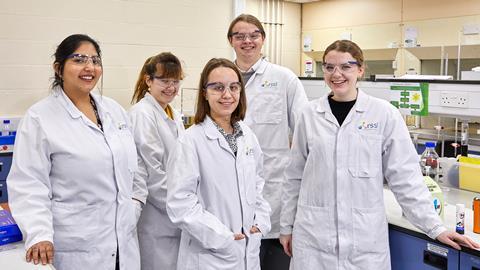
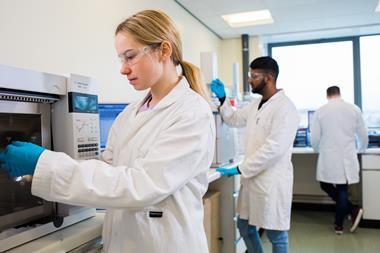
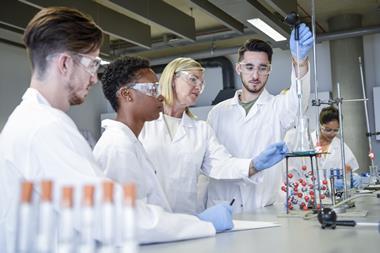










1 Reader's comment